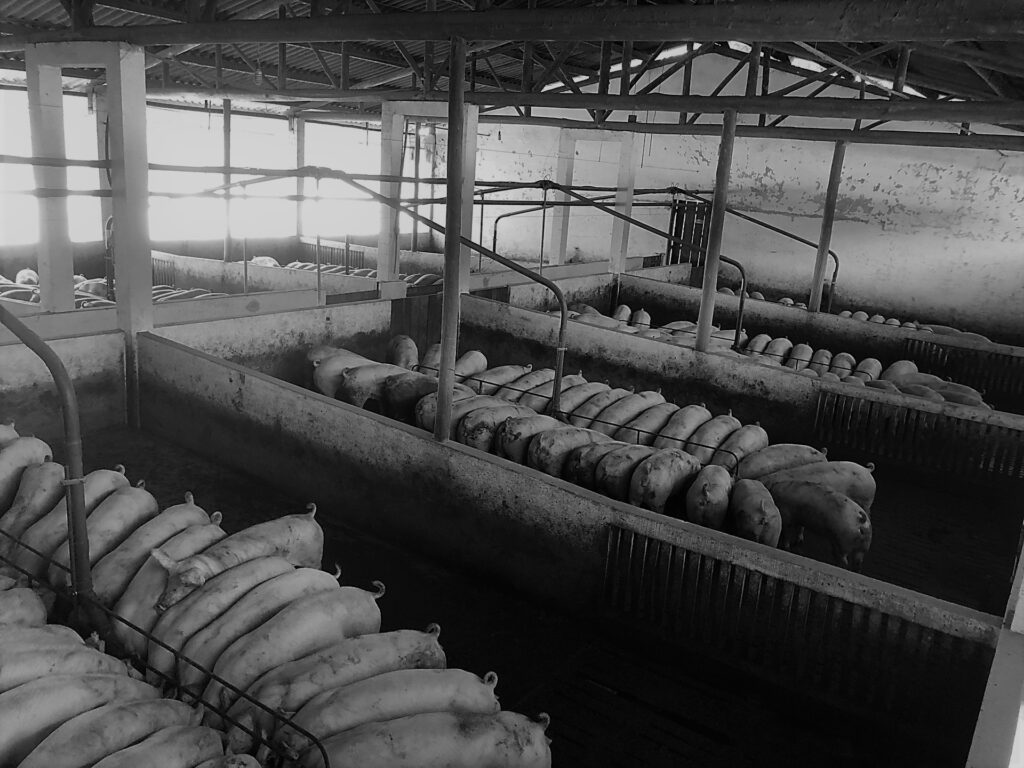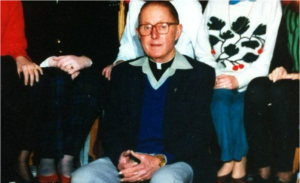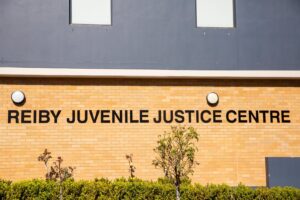Riverview Training Farm is well known as one of Queensland’s worst-ever children’s homes.
Run by the Salvation Army, the teenage residents were forced to work long hours on the farm and in the piggery, while their living arrangements were horrific. The whole building was a fire hazard and, on occasion, the boys were locked in cells with no pillows or blankets for weeks at a time.
When the boys misbehaved, they were flogged, punched and isolated. If they tried to escape, the punishment was even worse, and many of the younger inmates were sexually abused by the officers and older boys.
No one believed them. There was no escape.
In this article, we expose the crimes that occurred at Riverview Training Farm.
The history of Riverview
The Industrial School for Boys, Riverview — 1898 to 1926
The Industrial School for Boys was established in 1898 under the Industrial and Reformatory Schools Act of 1865. It went by various other names, including the Riverview Boys’ Probationary Home, the Salvation Army Industrial School for Boys and Riverview Boys’ Industrial Colony.
The Staff Captain of the Industrial School wrote a letter to the Home Secretary in 1910, offering insight into how the facility was run.
“This school was established on the 1st of October 1898, the boys being sent to us by the Government, and up to the present 101 boys have passed through the Institution, of whom 75 were returned to their parents, 19 placed in suitable situations, and 7 still in the Home,” he said.
“While under our care the boys are instructed as possible in general farm work, each boy is also taught to milk, and dairying work in general, we keep about 70 head of dairying stock, generally milking between 40 and 50 cows.”
“We also go in for pig raising, poultry keeping and in addition, each boy has a piece of ground allotted to him, for gardening purposes, he does his own gardening and the proceeds are placed to his credit. He can spend this now or it will be kept for him until his time expires.”
“By this means alone, two brothers on leaving the Home had 4-10-0 between them, besides the money they had spent from time to time while in the Home, by this means we find the boys get very interested and encouraged, and they make the most of their chances.”
Riverview Training Farm — 1926 to 1956
In 1926, the Industrial School for Boys was converted into a training farm for local boys and British “child migrants” over 14 years old. The Salvation Army was involved with child migration from Britain to Australia, and the Queensland Government agreed to contribute half the yearly cost of the reception and resettlement expenses of 100 boys.
Riverview was discussed in the National Archives of Australia publication “Good British Stock”:
“After World War II, the Salvation Army and other religious denominations were anxious to cooperate with the Government’s mass migration policy. In 1948, Brigadier Winton took Minister for Immigration, Arthur Calwell, on a tour of the Riverview property which had become run-down during the war years.”
“Winton hoped to make it a centre for child migrants but his understanding was that the ‘child migrants’ would be young men over fourteen years of age, more youth migrants for farm training. The Salvation Army was not involved with child migration, strictly defined, after the war.”
“Time passed — the Salvation Army organisation in Britain had cooled towards youth migration; renovations at Riverview took time, and the Big Brother Movement had become the organisation for youth migration. In the end, only a few youth migrants, fewer than one hundred, passed through Riverview during the 1950s, and by the 1960s the Salvation Army was using the place for other purposes.”
In 1935, all reformatory work was transferred to the government-run home at Westbrook, but the Industrial School reopened at Riverview.
Home for Boys, Riverview — 1956 to 1966, the Training Farm for Boys — 1966 to 1969 and Endeavour Training Farm 1969 — 1973
In the 1950s, the Salvation Army Training Home for Boys at Riverview admitted 77 boys under the child migrant scheme. In 1969, it was renamed Endeavour Training Farm — the Home was due to move towards a cottage-home model of care and in 1973, Endeavour Training Farm closed down.
The boys were moved to Hillsdale Village for Boys at Mulgowie.
“They just threw me on the ground and gave me a kick and a punch and said I was a filthy little beast”
In 2014, the Royal Commission received damning submissions about four Salvation Army Homes — Riverview, Alkira at Indooroopilly and two other homes in NSW. The submission claimed that five predators — Victor Bennett, Lawrence Wilson, Donald Schultz, John McIver and an officer known as X17 — were allowed to move between the four Salvation Army homes despite several allegations of child abuse.
The Riverview boys were forced to live under an “authoritarian rule” where physical abuse was excessive and widespread. Boys were physically, mentally and sexually abused on a regular basis, and according to documented evidence, the Queensland Government knew about these living conditions as early as 1970.
Gympie council worker, Raymond Carlisle, said Lieutenant Lawrence Wilson would “froth at the mouth” as he dealt out floggings, and on one occasion, Raymond thought he was going to be hanged as he was tied up with ropes and dunked into a well by two officers.
“[I was] in so much fear that I’d messed myself and then they just threw me on the ground and gave me a kick and a punch and said I was a filthy little beast,” Raymond said.
When Raymond finally left Riverview and moved back in with his mother, he could no longer accept any form of affection.
“You can never get clean of things. When I left Riverview Boys’ Home, I went back to live with my mother. I could never let my mother touch me or hug me or show me any affection. I didn’t know the difference between affection and abuse.”
Another survivor known as EY escaped Riverview for Maryborough after Major Victor Bennett failed to protect him from being bashed and raped by older boys. EY spent four months working at the Rosewood Piggery in Tiaro before he was recognised by local police and returned to Riverview.
EY was whipped with a leather razor strap as punishment.
Throughout the 1970s, the Department of Children Services repeatedly reported “shocking” conditions at Riverview including dilapidated buildings that were a fire risk. The river was also contaminated by effluent from the nearby meatworks and there were multiple reports of sexual assault — “at least two or three known incidents of outright rape including a very bad incident two or three months ago”.
The government allegedly responded by gradually restricting the number of boys placed at Riverview until the home was eventually closed.
A poor response to a horrific situation.
Boys were locked in a cage and kept there for days, even weeks at a time
Among the horrific punishments doled out at Riverview was “the cage” or “lock-up”. If the boys “misbehaved” in any way, they ran the risk of being put in a cage for days or even weeks at a time. They were forced to sleep on the floor without a pillow or blanket.
A former resident known as JE spent 12 days at Riverview in 1971 when he was 15 years old. JE and his brother had been arrested for going on a joyride. He said the abuse he suffered was “physical, psychological and racial”.
“I remember being locked in a small room in solitary confinement for fighting with some boys who were ‘wog-bashing’ me. You had to sleep on the same floor you’d been forced to go to the toilet on.”
JE was only given a piece of paper to clean up his mess. He was kept locked up for three days, and soon after, he and his brother planned to escape. His brother was caught but JE and a friend swam across the swollen Bremer River before they were caught by Broadbeach police. JE was sent to Westbrook Farm Home for Boys.
Years later, JE refused to accept a letter of apology from the Salvation Army. They said they were sorry that his experience at Riverview was “so unpleasant”.
“If I see one of those uniforms come within a metre of me, you’d better be there… Okay, just keep them away from me. If I see that Gestapo come near me…” he said.
“To me, it sounded like a letter you get from a hotel when you complain about a room. I did not consider it an apology – not by a long shot.”
Another former resident known as ES was put into solitary confinement by Captain Victor Bennet, who seemed to have a hatred for ES as soon as he arrived at Riverview.
”He took a disliking for some reason and the fact I just wouldn’t do what they told me to do. He tried to break me,” ES said.
”One day me and two other guys did something wrong — I forget what it was — and we were put in the holding cell. It was a room like — it looked like it had a door and iron bars on the front, just like your normal cell. We went to the toilet in a bucket.”
But it wasn’t just the officers abusing the boys. The older residents also inflicted abuse on the younger boys, including ES. One 18-year-old boy was described as a “sick bastard” who forced ES and another young boy to give him oral sex.
”He made me and another little fellow do things to him like suck his penis. Me and another fella ran away. When [the police] caught us, I told them what was happening to us but all they did was call Captain Bennett and say, ‘Is this happening?’ and he said, ‘No,’ and they sent me straight back.”
“I worked seven days a week from 4am – 8pm, hauling hay from the house to the shed”
Robert Toreaux spent a large portion of his childhood living and working at the Riverview Training Farm for Boys. He arrived at the farm in 1960 when he was just ten years old — his mother had tragically died in a car accident, and Robert and his siblings were abandoned by their father.
Robert had been separated from his seven siblings, and he bounced around 27 different orphanages throughout his childhood — Riverview Training Farm for Boys was the last stop. Robert was among 40 other boys who were forced to work as slaves.
“Before I was sent there, the state child’s department asked me what I was interested in. My parents had been farmers out in Laidley, so I said I would like to do that kind of work,” Robert said.
“After I arrived at the training farm, I worked seven days a week, from 4am – 8pm, hauling hay from the house to the shed, among other farm jobs.”
Robert said the boys were forced to eat food scraps out of the pig’s trough, regularly flogged and made to fight each other to entertain the staff members. He also said that the officers didn’t need a reason to hit them — they saw them all as “bad boys”.
“A lot of kids would cry at night… if you tried to pacify them you had to do it stealthily because if you got caught comforting them, you got flogged. I remember one kid, in particular, was hung upside-down in a well as punishment.”
Robert said he was relieved when he was finally allowed to leave. His sister, Carol, tracked him down and was appalled at how her brother was forced to live. Because Robert was a ward of the state, he was not allowed to leave unless he had a permanent working position, so Carol found their father and asked him to help save Robert.
Their father arranged for Robert to work in the merchant navy. Robert stayed in the role for 37 years.
Decades later, former residents of Riverview maintain a close bond due to their shared experience, and Robert coordinates the Riverview Old Boys Group, encouraging the men to reconnect and support each other. Each year, the group holds a Riverview Reunion BBQ at the old training farm and talks about their experiences — the good and the bad.
“I’m here for all the boys and I do as much as I can now to help them along. Some need financial help and for others just talking is enough. We can all relate to what each other might be going through because we’ve all lived the life,” Robert said.
“The current workers of The Salvation Army are a big help too and do whatever they can to help us. All the problems stem from the forbearers of The Salvation Army, not the people working there today.”
“The former officers at The Salvation Army didn’t break our spirit back then and they can’t break our spirit now.”
Feature Image: Pexels





